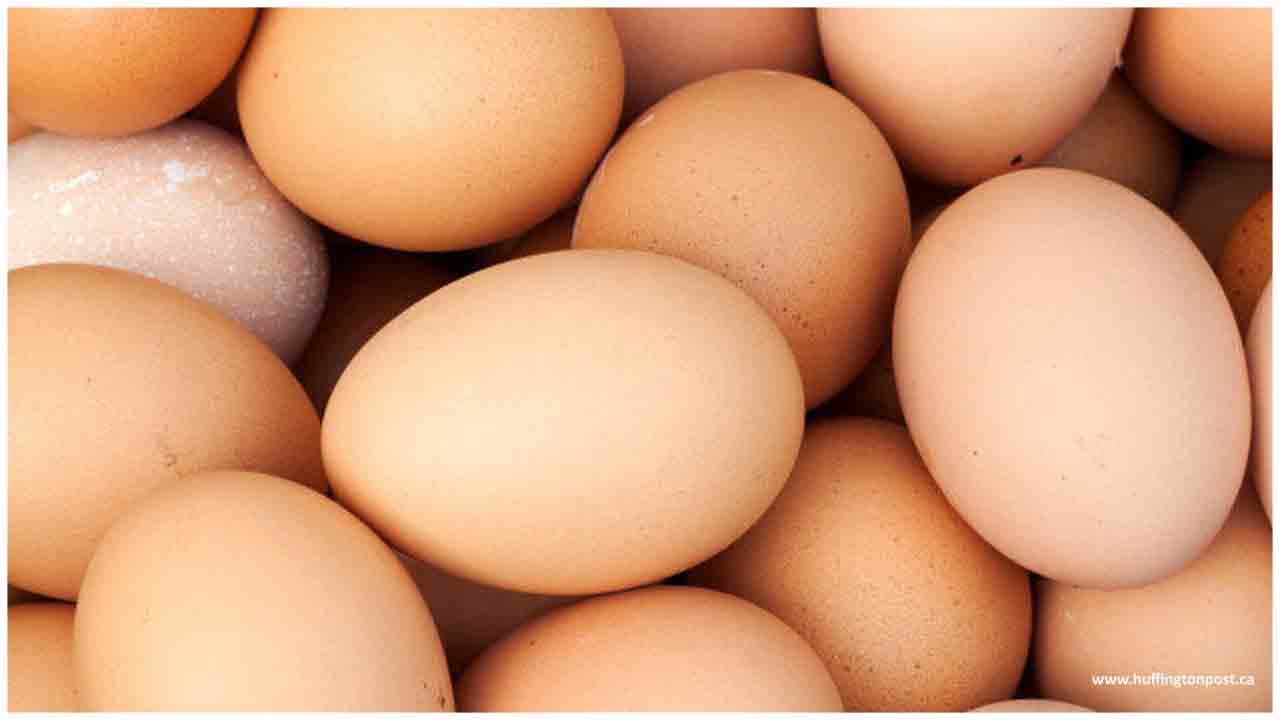Eggs have been a part of our diet since time immemorial. Still, a lot of us do not know how beneficial they are to our health.
Eggs are classified as the first class proteins since they have complete essential amino acids and are loaded with 11 vitamins and minerals, omega-3 fatty acids and antioxidants.
Thus, making it a complete food or a complete meal or a complete snack. There are a multitude of benefits to eating eggs every day. Most of the protein in an egg can be found in the egg white, while the yolk contains healthy fats, vitamins, minerals and antioxidants.
Proven health benefits of eating eggs.
Rich in nutrientsEggs are high in vitamins a minerals. One boiled egg contains about 40 per cent of your daily vitamin D requirements, 25 percent of your daily folate requirements, 12 percent of your daily Vitamin B2 requirements and 20 per cent of your daily selenium requirements.
They also contain vitamins A, E, B5, B12, as well as iron, iodine and phosphorus.
High in proteinsProteins are the building blocks of the cells and one single egg contains about 6.3 grams of high-biological value protein. The main functions of proteins in the body are to build, strengthen and repair or replace things, such as tissue. It’s the quality of the protein in eggs that really stands out. Eggs provide us with very high-quality protein that contains all nine essential amino acids in the right amounts needed by the body for optimum growth and maintenance.
Supports good cholesterolEggs help increase levels of the good cholesterol in the body called as high-density lipoprotein (HDL) which helps in reducing the risk of heart diseases.
Great source of Omega-3Omega-3 is basically omega-3 polyunsaturated fatty acids. They are essential fats that play an important role in the way our cell membranes work. Omega-3 fats are good for many things, from heart and brain health to protecting our eyes. Fatty fish is one of the best source and eggs contain similar type of omega-3s as those found in fish. This makes eggs particularly useful for people who do not consume fish.
Helps in weight lossSince eggs are nutrient dense and a great source of high quality protein, eggs are one of the healthiest foods you can eat for weight management. Studies have found that eating eggs can make you feel full for longer. This is because, consuming eggs causes delaying in the rate at which the food leaves the stomach, also, eggs help to reduce the variations in glucose and insulin levels which can have benefits for weight management. The high satiety levels of eggs leads to greater feelings of satisfaction, less hunger and a lower desire to eat later in the day, hence you will have the urge to snack in the middle of the day.
Best source of CholineCholine is essential for normal cell functioning and is particularly important during pregnancy to support healthy brain development in the baby. Eggs are one of the best dietary sources of choline.
Not many people have heard of choline but this nutrient plays an important role in our health.
Beneficial for eyesEggs are rich in the antioxidants lutein and zeaxanthin, vitamin A and omega-3 fatty acids in eggs may also protect eyes from retina damage, counteracts degenerative vision as you age, cataracts and macular degeneration. Also, studies have shown that these antioxidants are better absorbed by the body from eggs than from plant sources.
Healthy agingWith increased nutrient requirements as we age there are increased risk of deficiencies in fibre, calcium, vitamins A, E, C, B6, B12, folate, Vitamin D, iron, magnesium and zinc. And since eggs contain 11 different vitamins and minerals, eggs are an easy way to increase nutrient intakes. They’re also one of the few foods that contain vitamin D, are economical, easy to prepare and easy to eat.
Good for diabeticsDiabetics have higher levels of 'bad' (LDL) cholesterol and higher levels of triglycerides than people without diabetes but eggs are a low-carbohydrate food with a very low glycemic index score and upcoming researches have confirmed that people with pre-diabetes or type 2 diabetes can eat up to 12 eggs a week as part of a healthy diet which will not increase cardiovascular risk factors. Increasingly, other studies indicate that if they replace less healthy foods, such as refined grains, and boost levels of quality protein in the diet by the inclusion of eggs on a daily basis, it may be beneficial for those with type 2 diabetes. Of course, it’s important to remember that overall dietary patterns, physical activity, and genetics affect the development of type 2 diabetes more than any single food.

 Choline is essential for normal cell functioning and is particularly important during pregnancy to support healthy brain development in the baby. Eggs are one of the best dietary sources of choline.
Choline is essential for normal cell functioning and is particularly important during pregnancy to support healthy brain development in the baby. Eggs are one of the best dietary sources of choline. 









.jpeg)

.jpeg)



.jpeg)
.jpeg)






.jpeg)






